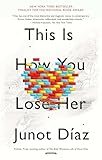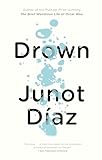
In his other life as a filmmaker, Arthur Bradford made a fantastic documentary about the making of an episode of South Park called 6 Days to Air. The title references how quickly Trey Parker, Matt Stone, and crew are able to produce a half an hour of blistering animation, and in one particularly insightful moment, Parker offers this bit of writing advice:
I sort of always call it the rule of replacing “ands” with either “buts” or “therefores.” And so it’s always like: This happens, and then this happens, and then this happens. Whenever I can go back in the writing and change that to: This happens, therefore this happens, but this happens. Whenever you can replace your “ands” with “buts” and “therefores,” makes for better writing.
What he’s talking about is narrative economy, about figuring out the most efficient way to tell a story, but he’s also tapped into something deeper — namely, that the power of scenes is, in many ways, relational. Stories work best, in other words, when sequential action is causal or obstructive.
One can see why Bradford would make a documentary about these guys. The stories in his new collection Turtleface and Beyond are positively stuffed with “buts” and “therefores.” The stories even function almost like episodes, and, as Parker instructed, each story employs skillful economy. A young man named Georgie is our narrator, and this consistency greatly increases the impact of each story as the collection moves along: Georgie is more and more defined, so we don’t need to be reintroduced to him, leaving Bradford with the chance to move directly into his weird, funny adventures.
In the opener, “Turtleface,” Georgie watches his friend unwisely decide to run down a cliff face into a river. Amazingly the friend makes it into the water. Unfortunately, he smacks his face into a floating turtle. Georgie, tellingly, seems to care as much for the now-broken turtle as he does for his cavalier buddy, even bringing the little guy home until he’s mended. Later, in “Snakebite,” Georgie and a few friends stop to help a hitchhiker who’s been bitten by a cottonmouth. Georgie, of course, ends up being the one to suck the poison out (a doctor asks him later, “Why the hell did you do that?”). And still later, Georgie gets mixed up with a partner at a law firm who’s going through a mid-life crisis. Georgie, with nothing but the best intentions, becomes the lawyer’s middleman for drugs and prostitutes.
The point is: Georgie is a good guy who ends up in some compromising situations. But Georgie’s goodness is more than just a character trait –– it’s a narrative strategy. Through his hapless narrator, Bradford is able to push the stories into some absurd territory, because Georgie means well, and doesn’t always see where his choices will take him. In other words, Georgie grounds the stories for the reader, weighting them so they don’t float off into pure silliness.
Sometimes, Georgie should have seen the shit coming. When he gets “fired from my job for a stupid indiscretion,” (which, we readers assume, refers to the time he slept with a patient at a mental institution where he was an orderly, but could be referencing any number of other fuck-ups) he wants to “leave town.” The person with whom he finds a ride is a man named Paul O’Malley. Here is the ominous (but also very funny) preview of their trip together:
Paul was passing through town on his way to the West Coast and had announced that he would be gone in the morning. I saw him two weeks later though, right after I’d been fired from that job. He was wandering downtown, looking a little dazed and strung out.
“I haven’t slept in three days,” he told me.
“I thought you were going out west,” I said.
“I am.”
“But you said you were leaving two weeks ago.”
“I got hung up. Wait, two weeks? It hasn’t been that long.”
“Yes, it has.”
“Oh.” Paul scratched his head.
Most of us would probably take Paul’s sudden loss of two weeks as a sign to avoid spending hours alone and on the road with this dude, but Georgie, desperate and good-hearted, jumps right in. (Spoiler: the trip doesn’t go well).
Yet this is another part of Georgie’s charm: he’s willing to do stupid, irresponsible things — dangerous, illegal things — but that doesn’t take away from the fact that he’s a decent person. Take, for instance, the funny and poignant story “The LSD and the Baby.” Yes, Georgie agrees to go out into the woods with a guy named Richard to “sample a batch of LSD he recently completed.” And, yes, he doesn’t object when he learns that a woman named Sabrina and her baby are tagging along. But when both Richard and Sabrina disappear into the woods (presumably to have acid-enhanced sex), good ole Georgie takes the baby’s life into his own hands, first to a hospital (the baby eats some possibly poisonous berries) and then to his job, and all while tripping balls. Georgie only gets a quiet yet dignified catharsis at the end of the story, but it’s a lovely moment.


 I was reminded of Tom Perrotta’s Bad Haircut and Junot Díaz’s Yunior stories in Drown and This Is How You Lose Her. And then, of course, going back to Sal Paradise and Dean Moriarty in On the Road and even further back to Ernest Hemingway’s Nick Adams and F. Scott Fitzgerald’s Sad Young Men (and Keith Gessen’s Sad Young Literary Men). Essentially, these are all –– from Bradford to Hemingway, the lot of them –– often just stories about young men doing stupid shit, or young men not doing enough good shit, or young men doing good shit in the wrong way. In many cases, we assume the narrator is a stand-in for the author (or, as in Gessen’s case, he takes all the pretext of guesswork out of it by naming his narrator Keith), and we often interpret each piece as some form of self-reflection. They read easy, almost like reportage, and their authenticity is built into the voice, the rhythm and flow of the prose. Sometimes, though, the shallowness isn’t a disguise for anything more meaningful than the story itself, which places great weight on the likeability, and not to mention the humanity, of the protagonist. Sal Paradise, I can live without. And to me Dean Moriarity seems like a real asshole. Yunior, though, I adore. And Georgie, well, Georgie’s a good dude in my book. As I read, I wanted to follow along with him, so even when a story didn’t exactly work as a whole, I didn’t mind — Georgie had my back.
I was reminded of Tom Perrotta’s Bad Haircut and Junot Díaz’s Yunior stories in Drown and This Is How You Lose Her. And then, of course, going back to Sal Paradise and Dean Moriarty in On the Road and even further back to Ernest Hemingway’s Nick Adams and F. Scott Fitzgerald’s Sad Young Men (and Keith Gessen’s Sad Young Literary Men). Essentially, these are all –– from Bradford to Hemingway, the lot of them –– often just stories about young men doing stupid shit, or young men not doing enough good shit, or young men doing good shit in the wrong way. In many cases, we assume the narrator is a stand-in for the author (or, as in Gessen’s case, he takes all the pretext of guesswork out of it by naming his narrator Keith), and we often interpret each piece as some form of self-reflection. They read easy, almost like reportage, and their authenticity is built into the voice, the rhythm and flow of the prose. Sometimes, though, the shallowness isn’t a disguise for anything more meaningful than the story itself, which places great weight on the likeability, and not to mention the humanity, of the protagonist. Sal Paradise, I can live without. And to me Dean Moriarity seems like a real asshole. Yunior, though, I adore. And Georgie, well, Georgie’s a good dude in my book. As I read, I wanted to follow along with him, so even when a story didn’t exactly work as a whole, I didn’t mind — Georgie had my back.
 It’s been 14 years since Bradford’s last story collection Dogwalker. In the meantime, he hasn’t been what anyone would call prolific, but he’s been living quite a life. He worked in New York for a while, he recently wrote, and he “directed a summer camp, made several films, had two children, and currently works at a juvenile detention center in Portland, Ore.” And it’s true: the stories in Turtleface and Beyond do read like the result of someone with a multitude of absurd experiences, real, visceral familiarity with these people, this world depicted within its pages. Good for him.
It’s been 14 years since Bradford’s last story collection Dogwalker. In the meantime, he hasn’t been what anyone would call prolific, but he’s been living quite a life. He worked in New York for a while, he recently wrote, and he “directed a summer camp, made several films, had two children, and currently works at a juvenile detention center in Portland, Ore.” And it’s true: the stories in Turtleface and Beyond do read like the result of someone with a multitude of absurd experiences, real, visceral familiarity with these people, this world depicted within its pages. Good for him.









